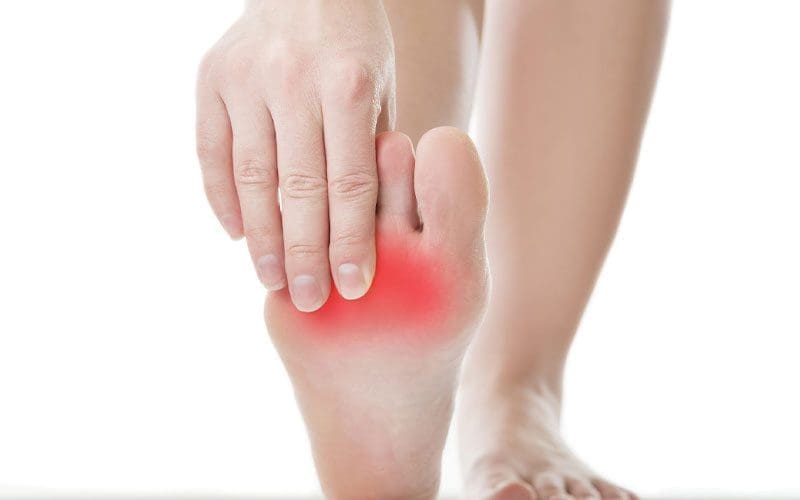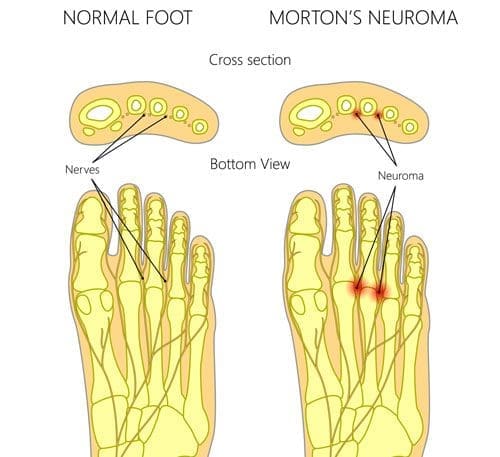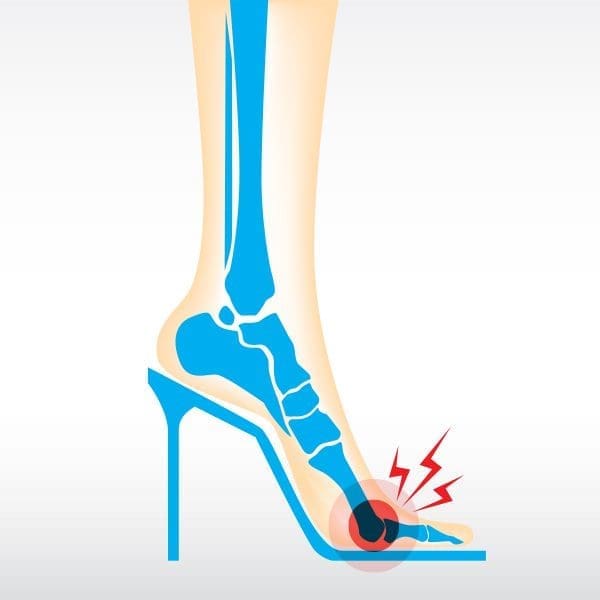
Published: November 07, 2019
Morton’s Neuroma
What is a Morton’s Neuroma?
A Morton’s neuroma is a pinched or irritated nerve in the ball of the foot, usually between the third and fourth toes. Morton’s neuroma happens when the tissue around a nerve in your foot thickens from irritation or compression, which causes pain. A Morton’s neuroma also is called an interdigital neuroma, intermetatarsal neuroma, or a forefoot neuroma.

Who Can Get a Morton’s Neuroma?
Anyone can get a Morton’s neuroma, however, it develops much more frequently in women than it does in men. This is likely because high-heeled and narrow-toed shoes are among the biggest causes.
What are Common Risk Factors to Develop a Morton’s Neuroma?
Anything that causes irritation, pressure, or injury to one of the nerves that lead to your toes can contribute to the development of a Morton’s neuroma. Some of the most common risk factors include:
- Tight fitting shoes
- High heeled shoes
- Trauma to the foot
- High impact sports

Symptoms of a Morton’s Neuroma
Typically, there’s no outward sign of this condition, such as a lump. Instead, you may experience the following symptoms:
- Sharp, burning pain to the toes – particularly toes 3 and 4
- Feeling of a bunched up sock under your toes
- Feeling of standing on a pebble in your shoe
Prevention
One of the easiest ways to prevent a Morton’s neuroma is to choose the right kind of shoes.
- Wear shoes with a wide toe box
- Wear shoes with a low heel
Treatment
Treatment depends on the severity of your symptoms. Your doctor will usually start with a conservative treatment and move on to more aggressive treatments if your pain persists. Typically the treatment of neuromas does not include surgery. Common treatments include:
- Change in shoe gear
- Off-loading foot pad
- Steroid injections